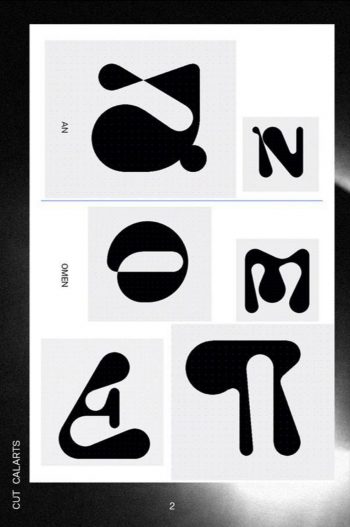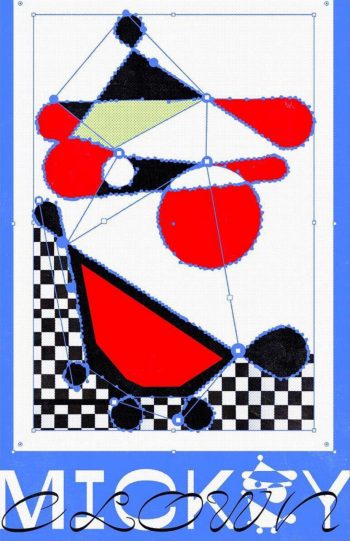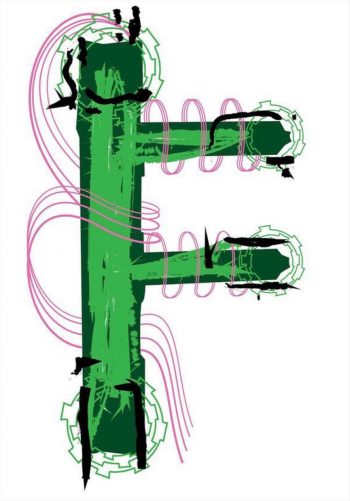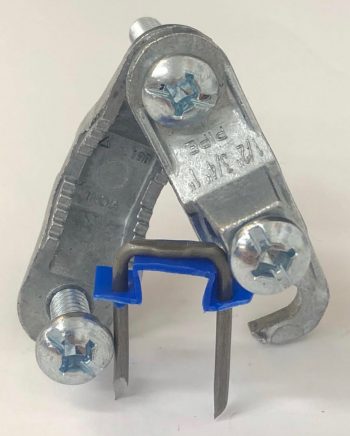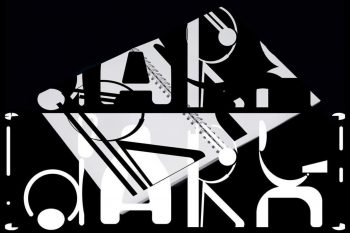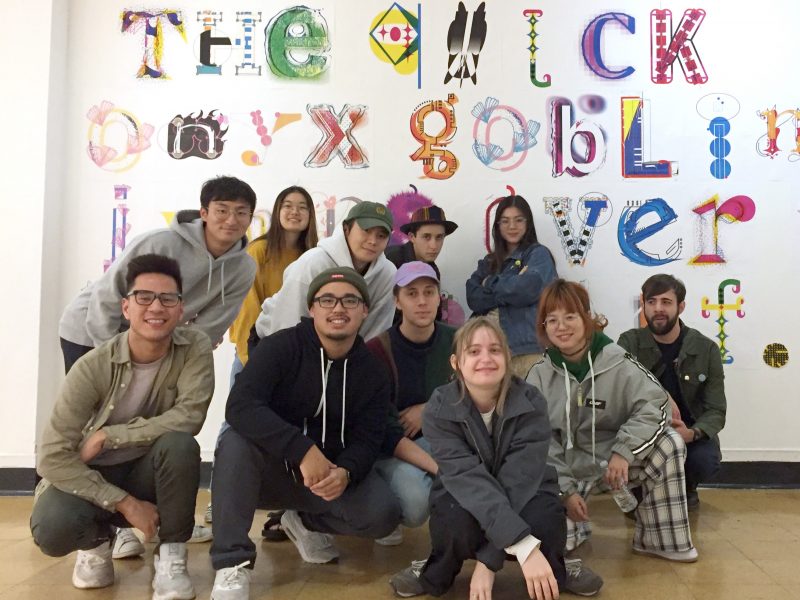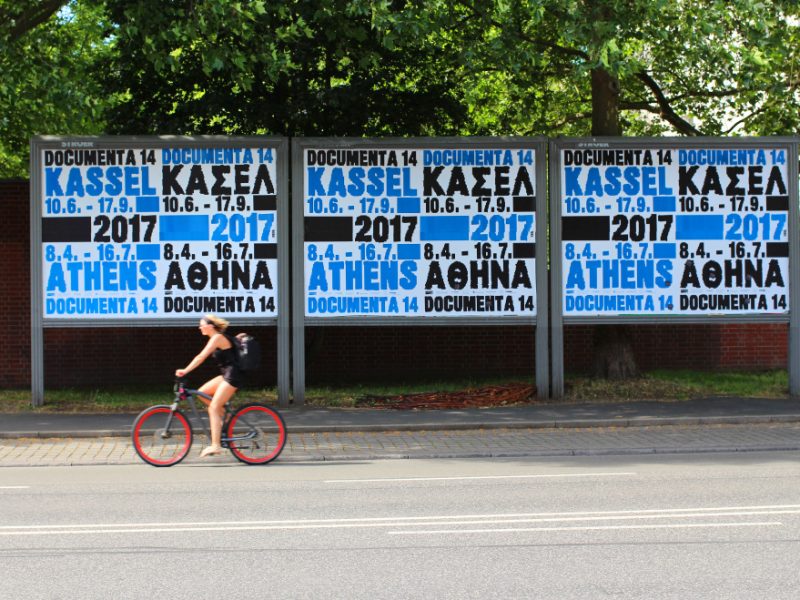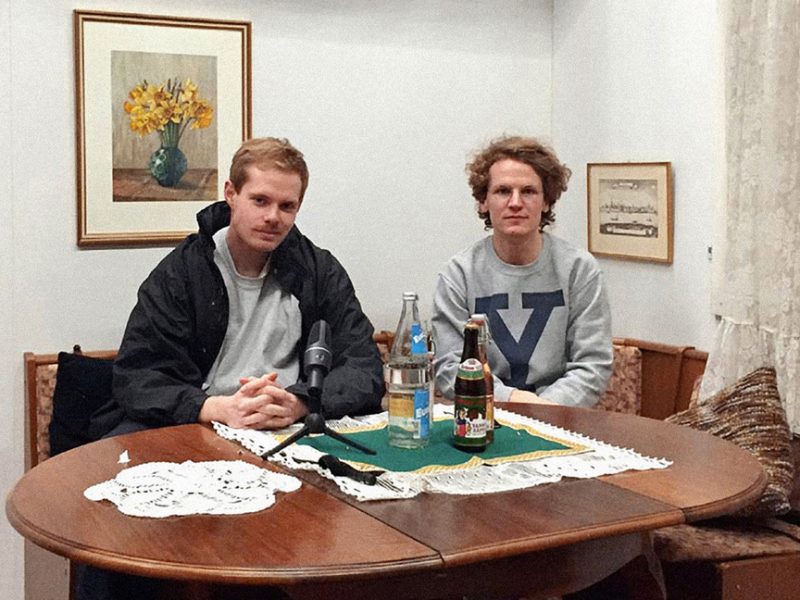BFA3s David Weiss and Lyla Zhou explain CUT.
CUT is an informal after-school program where we explore type and letterforms without the restrictions of expression and meaning.
We wanted to create a space in which strictly form-based design could flourish, as a change of pace from our curriculum. Focusing on letterforms and their potential representations, we made it our goal to address new possibilities.
To give ourselves some direction as a starting point, the origins of the forms were not completely randomized. Instead, we put an emphasis on process and how different approaches resulted in varying forms.
Once a week we would meet in the afternoon and all start out with the same preliminary building blocks. These could be physical objects, a certain medium, or even old and restrictive vector software. For example, for our first meet we gathered an array of screws, pipes, and construction materials. These were photographed, traced, drawn over, combined, etc., to make letterforms in a myriad of possible combinations.
The results of every session are digitized, mostly in vector format, and all of them are catalogued weekly on our Instagram page (@cut_calarts).
For the 2019 CalArts Print Fair we printed an index of all letterforms that had been produced, as well as earrings, stickers, and more adorned with what we had made. All profits were donated to Save the Children’s Hurricane Idai relief fund.
The initial inspiration for what we wanted CUT to look like came from a project in Gail Swanlund’s type class, which was based on Peter Bilak’s “History” type system. The project entailed layering elements of letterforms and playing with their legibility, resulting in truly unique shapes and representations.
With CUT, we wanted to take this exploration further and hoped to encourage a form-based practice and discussion.
